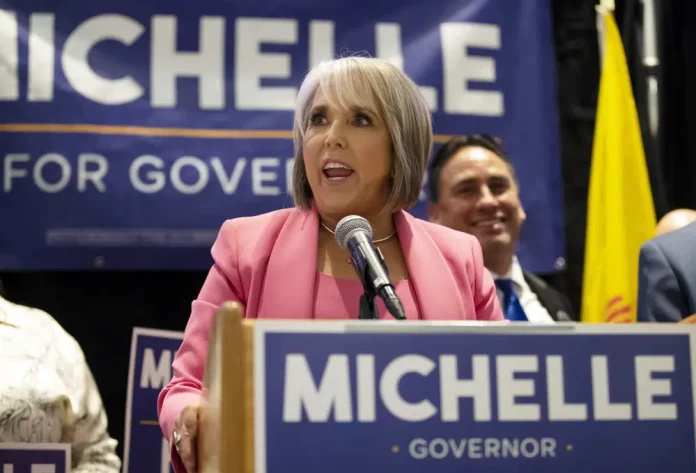
The state of New Mexico is likely to inherit a new, multibillion-dollar financial windfall largely from surging oil production and robust energy prices in the era of war between Ukraine and Russia, economists told a panel of leading legislators on Monday.
Economists from four state agencies revised upward estimates of government income that are the basis for budget negotiations by lawmakers when the legislature convenes in January 2023.
They estimate state government income of nearly $12 billion for the fiscal year running from July 2023 to June 2024. That revenue would exceed current annual general fund spending obligations by $3.6 billion — or 43%.
The forecast enhances the potential spending authority of newly reelected Democratic Gov. Michelle Lujan Grisham and members of the Democratic-led Legislature.
Democratic state Sen. George Muñoz of Gallup said the state has a unique opportunity to make investments that expand economic opportunity and rein in dependence on petroleum production in the future.
“No one in this state’s history has ever had this opportunity,” said Muñoz, vice chairman of the legislature’s lead budget-writing committee. “We can really set this state up to not be dependent on oil and gas.”
He also highlighted efforts to improve public education in the aftermath of the COVID-19 pandemic and aggressive health restrictions that shut down classroom teaching for roughly a year.
Lujan Grisham last week outlined new goals for combatting childhood poverty by expanding daycare subsidies and providing meals at schools free of charge. Her administration also is proposing an expansion of minimum instructional time at schools and increases in school salaries and benefits.
Public schools in New Mexico operate primarily on money from the state general fund and investment income from New Mexico’s $26 billion land grant permanent fund.
Voters in November approved an increase in annual withdrawals from the land grant trust to boost spending on K-12 schools and early childhood education, though congressional approval is still required and pending.
If Monday’s state income forecast comes to fruition, billions of dollars will automatically flow to a new investment fund designed to underwrite early childhood education initiatives. The balance could reach $8 billion as soon at 2024.
Money is pouring into government accounts from a variety of taxes and fees. Much of it can be traced to oil and natural gas development in New Mexico’s portion of the Permian Basin that stretches across the southeast corner of the state and western Texas.
New Mexico in 2021 became the No. 2 oil producer in the nation behind Texas and continued to set local production records as recently as September.
The Legislature’s budget and accountability office said state government is relying increasingly on income from the fossil fuel industry that could falter suddenly with an economic downturn. Oil production has expanded far beyond pre-pandemic levels and shifted toward public lands overseen by the U.S. government, providing New Mexico with a boost in royalty payments to its state general fund.
“It’s really staggering,” said Ismael Torres, chief economist at the budget and accountability office. “You can see that New Mexico is really powering the U.S. oil production growth.”
Department of Finance and Administration Secretary Deborah Romero, who retires later this month without a named replacement, encouraged legislators to consider one-time investments in infrastructure for water and communications and cautioned against expanding permanent programs too much.
Republished with the permission of The Associated Press.













